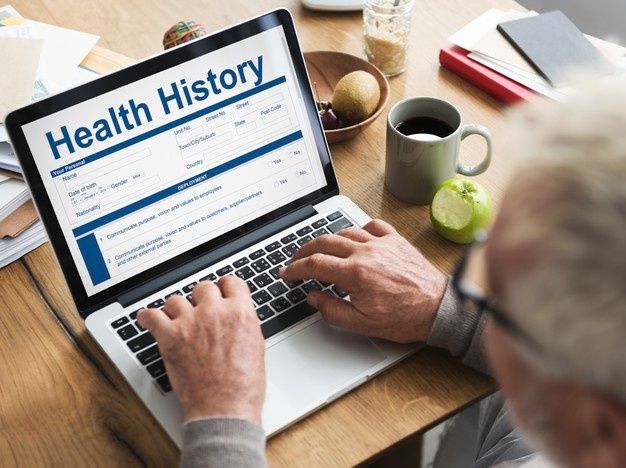
National Family Health History Day
Thanksgiving Day is November 25 this year and will also be National Family Health History Day, which the U.S. Surgeon General established in 2004. With the family gathered, it can be an excellent time to remind each other about check-ups, preventive screenings, and healthy habits. Taking some time on Thanksgiving Day also allows your family to discuss their family medical history.
Benefits of Knowing Your Family Health History
Families have several good reasons to discuss their health history. For instance, some diseases run in families. These include diabetes, heart disease, some cancers, and arthritis. Genetic factors also play a role in high blood pressure, stroke, and life expectancy.
Having a genetic predisposition toward a condition does not mean you will automatically be diagnosed with it. Instead, knowing which diseases family members have can motivate you to engage in preventive care and get early screenings.
Also, a family health history can help your doctor provide you with the proper preventative care. Being able to track the illnesses of your parents, grandparents, and other relatives enables your provider to advise you on appropriate screenings.
They can also guide you on ways to prevent certain conditions and help you get the right treatments before serious symptoms emerge. While you cannot change your genes, knowing your family health history can influence your medical outcomes.
Ways to Observe National Family Health History Day
Take inventory. Start by writing down each family member’s name. Do not forget to include:
- Parents
- Siblings
- Grandparents
- Aunts and uncles
- Cousin
- Nephews and nieces
Next to each name, list medical conditions, age at diagnosis, and anything else that might seem relevant. See if you can talk to each of them about their medical histories to fill in any missing information.
Prepare questions. If talking to your relatives about their medical histories feels uncomfortable, try preparing some questions to initiate the conversation. To get started, consider customized versions of these questions:
- Where did our family come from? What ethnic groups make up our family?
- How old was Grandpa when he died? What caused his death?
- Have you had a serious disease, like cancer? Which type? About how old were you when you got the diagnosis?
- Have you struggled with any chronic diseases like diabetes or heart disease? Do you take any medication for, say, high cholesterol or high blood pressure?
- I know that Grandma died when she was 81. Is that how long people in our family usually live?
You can also ask other relatives to prepare questions before Thanksgiving. They can write down their health concerns to remember them when everyone is together. Although the holiday might seem like an awkward time to talk about medical issues, some of your relatives might be more willing than you think to discuss their health history.
Create a record for detailed information about prevalent health conditions, life expectancies, and family members who have had certain diseases. Organize it in a way that makes sense to family members and is easy to convey to healthcare providers. You can build a hand-held binder that includes documents with easily retrievable information. The binder can hold copies of documents that you can copy and distribute to family members.
If you are a little more tech-savvy, start an account at My Family Health Portrait. The Office of the U.S. Surgeon General created this website to make it easier for families to document their health history and keep it in a virtual, centralized location. Users can record their history before medical appointments, share data with relatives and healthcare providers, and update the account as they learn new family information.
What Do I Do with This Information?
Maintaining a family history is a great place to start. Remember that creating your family health history is not a one-time activity; it requires continuous updating. Moreover, the information is only helpful if you know what to do with it. For instance, because some family members might not consult the family history regularly, another family member can circulate updates to everyone about a recent diagnosis, hospitalization, or screening result.
Family members should also use their health history to keep their doctors in the loop. Each one can start with their primary healthcare providers and include any specialists. This will help each family member prepare for an upcoming medical appointment by gathering information from the health history and bringing their concerns to their doctor’s attention. Even if you do not have all the information, sharing anything can inform screening decisions and diagnoses.
Research and materials for this article were compiled, written, and distributed on behalf of the National Public Health Information Coalition. The views and opinions expressed in this blog are those of the various authors and do not necessarily reflect the official policy or position of the National Public Health Information Coalition or its members.
References

